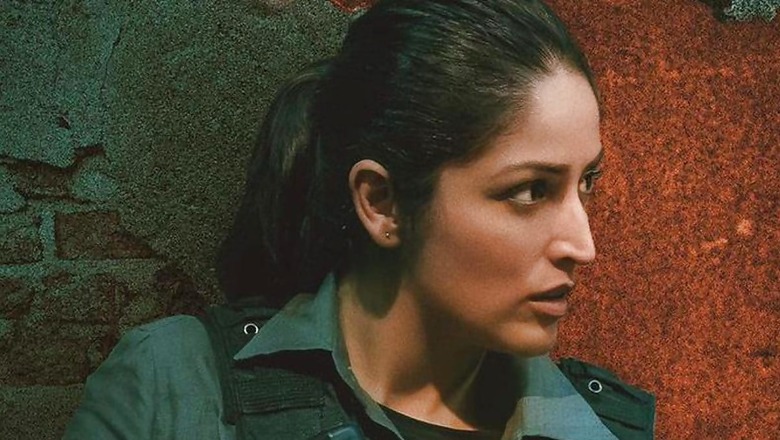
views
Article 370 review: Uri: The Surgical Strike not only gave Bollywood a young superstar but also set a precedent for contemporary war films. Spiffy camera work, never-seen-before strike sequences, stupendous direction and a crisp editing made it strike a chord with the audience and a sleeper hit. Five years later, Aditya Dhar returns to tell a story about Indian polity with the ‘conflict economy’ of Kashmir at the centre in ‘Article 370’. However, this time, he hasn’t donned the hat of a director.
Article 370 might not be as crisp and slick as Uri: The Surgical Strike but it still manages to leave a mark. The hard-hitting prologue by Ajay Devgn perfectly sets the tone of the film at the outset. It revolves around ID field officer Zooni Haksar, who successfully manages to kill Burhan Wani, a Mujahideen, who’s also the son of a headmaster, in an encounter. This, however, has devastating ramifications and plummets the valley of Kashmir into a state of crisis with throngs of civilians protesting against his death with stone pelting. Following the situation that was widely reported as one of the most critical instances of modern history, Zooni is suspended from ID and is sent off to Delhi, where she’s now in charge of providing security to weddings at ministers’ homes.
This goes on until Rajeshwari Swaminathan, Joint Secretary, PMO approaches her to lead NIA to bring about some sense of stability in the valley and ultimately abrogate Section 370, that accorded a special status to the state of Jammu and Kashmir. This gives Zooni the opportunity to go back to Kashmir and stabilise and achieve ‘aman’ in the valley that according to her is ‘a lost case’. We also get a glimpse into the infamous Pulwama Attack and the minds of separatist leaders and officials who have their own vested interests.
Article 370 has been shot in some real locations that imparts a lot of authenticity to the narrative. Cinematographer Siddharth Vasani captures the essence of Kashmir with aplomb that each frame set there smells of the valley. The solemnity of the narrative is perfectly conveyed through muted tones of blue and grey that predominates the film. At 2 hours and 40 minutes, Article 370 largely manages to keep you hooked. The makers waste no time and dive into the crux of the story in the first half and it makes for a fast-paced experience till the point of intermission. It’s the second half of the film that appears stretched out.
The background score of Uri: The Surgical Strike elevated the screenplay but the same cannot be said about Article 370. In fact, some pieces aren’t even in tandem with what we see onscreen. The Pulwama Attack episode, for instance, has a peppy instrumental playing in the backdrop as we see a convoy burning up in flames. Background music is a tricky element for a political drama and this is what robs many important scenes in the film of their substance and emotionality.
Yami Gautam Dhar, who plays Zooni Haksar, delivers an impressive performance. She brings a lot of stillness and dignity to the table and makes sure that she never forays into hysteria even while expressing her intense emotions about Kashmir. Watch out for this one monologue she delivers where she sheds light on how Kashmir’s biggest enemy is its billion-dollar conflict economy and its affluent class. The credit also goes to the dialogue writers. In many other scenes, she lets her eyes do most of the talking.
Priya Mani, on other hand, plays Rajeshwari Swaminathan and she slips under the skin of her character with a lot of finesse. It would be interesting to see her take on chunky roles like this and give the Hindi film watching audience a few glimpses of what she’s truly capable of. It’s also refreshing and interesting to see two women at the forefront of change, making difficult calls. We only wish there were at least a couple of more scenes between them!
The rest of the cast doesn’t have much to do, with the powerful characters of Zooni and Rajeshwari overshadowing them. But director Aditya Suhas Jambhale and his team deserve applause for their efforts and attempt. Yes, there’s a lot of room for improvement but you can still give it a watch.



















Comments
0 comment